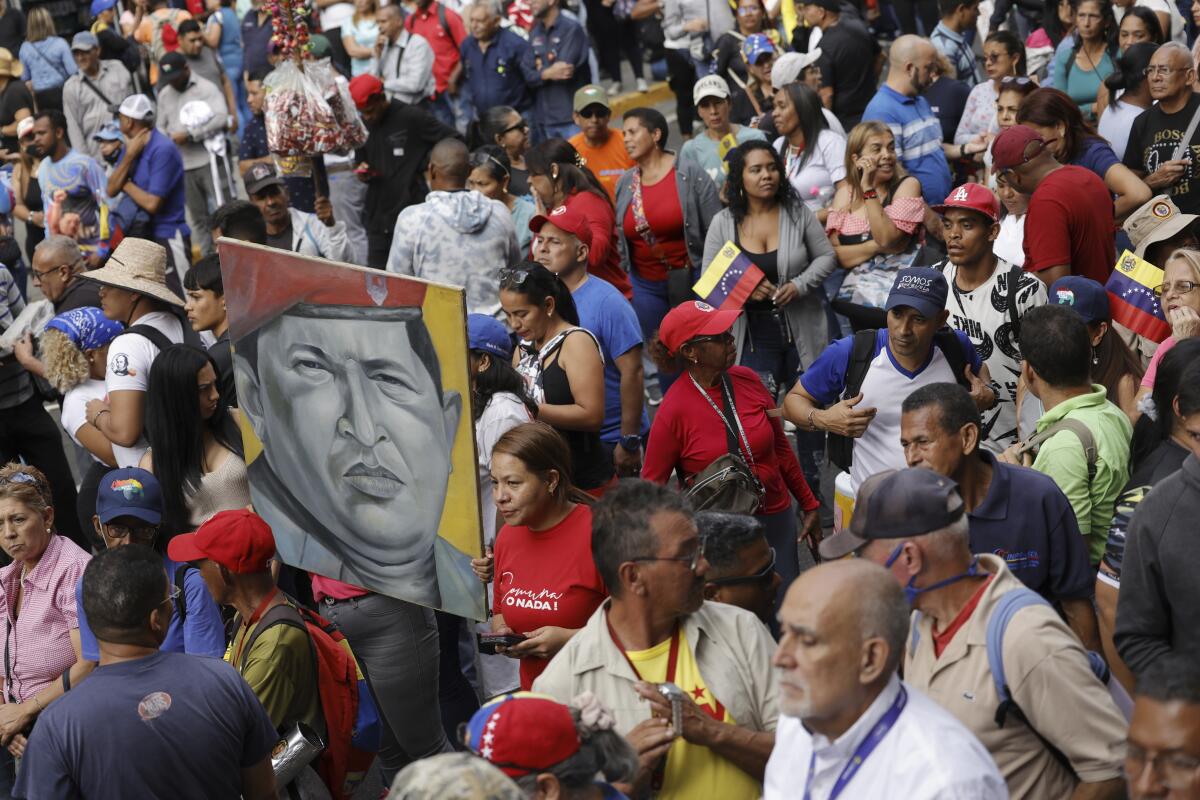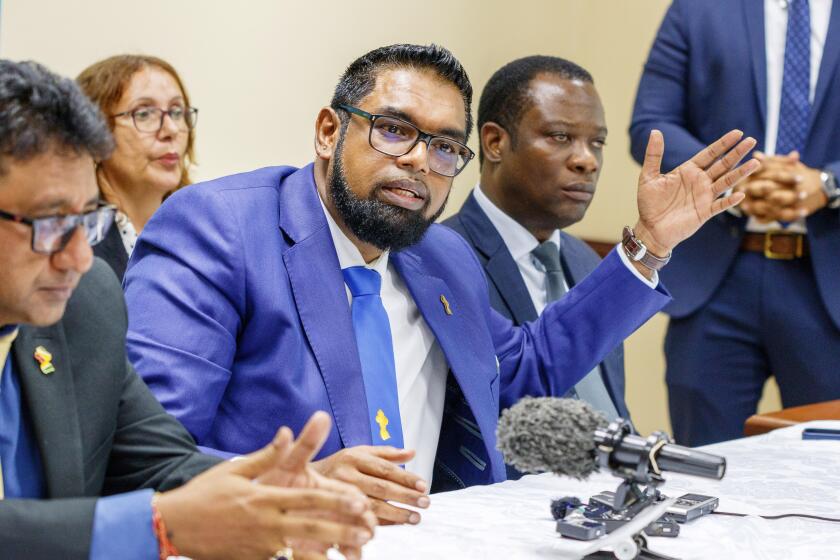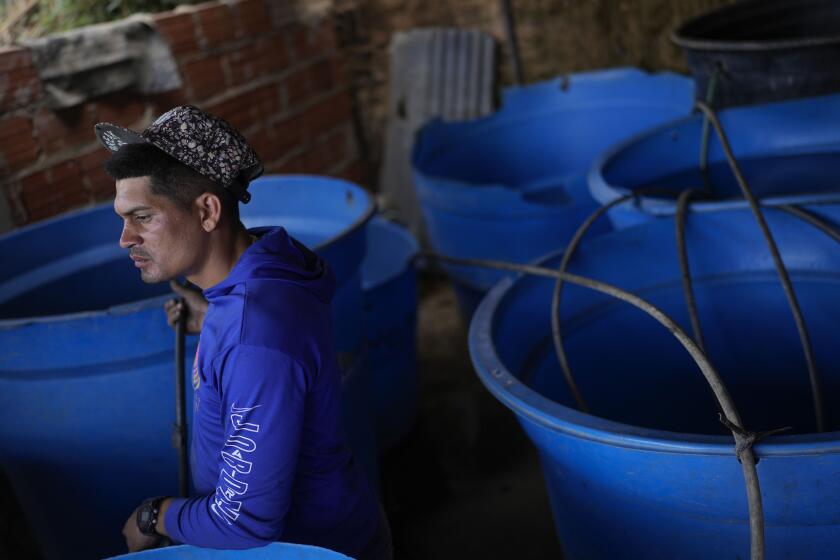Dueling factions demonstrate in Caracas as Venezuela’s presidential race heats up

CARACAS, Venezuela — Dueling political factions took to the streets of Venezuela’s capital Tuesday for the first competing rallies of the presidential election year, showcasing their ability to draw people en masse, as voters grapple with political disappointments and uncertainty over the candidate who ultimately will challenge President Nicolás Maduro.
Supporters of Maduro’s ruling party and opposition leader María Corina Machado demonstrated in Caracas a day after Venezuela’s top prosecutor announced the detention of more than 30 people and arrest warrants for a dozen others who allegedly plotted efforts to destabilize the government.
But if either camp had hoped to scare the other through sheer numbers, neither side massed the tens of thousands it was capable of in previous years.
Maduro supporters — mostly state workers, ruling party community leaders and loyalists of the late President Hugo Chávez — walked across the city, with dozens congregating in the same plaza where Machado, the winner of an October presidential primary, was expected to address her own followers.
More than an hour after Machado was supposed to show up, her supporters left the plaza and stopped traffic, allowing her to address them from a makeshift stage as they waved Venezuelan flags.
“They talk about elections, but they are terrified of elections,” Machado said, referring to Maduro and his allies. “But because they know that they do not have votes, they hide ... behind threats, persecution, lies, a fabricated sentence, to try to end us. Let them know clearly, no one takes us out of this electoral route.”
Venezuelan President Nicolás Maduro has threatened to annex a large, oil-rich chunk of neighboring Guyana, leading to fears of clashes.
Maduro and the opposition faction behind the primary agreed last year to hold a presidential election in the second half of 2024. The agreement, which also calls on both sides to work on free and fair electoral conditions, earned Maduro’s government some relief from U.S. economic sanctions and resulted in the release of several political prisoners.
Maduro will seek to add six more years to his decade-long, crisis-ridden presidency. His challenger’s participation in the election remains in doubt even though she won the primary with more than 90% of support.
The government has banned the former lawmaker from running for office, and Atty. Gen. Tarek William Saab has opened criminal investigations against organizers of the primary, which was carried out with no support from Venezuela’s electoral authorities. Authorities have not shown any evidence supporting the ban against Machado, who has continued to campaign and to insist that voters, not ruling party loyalists, are the rightful deciders of her candidacy.
The U.S.-backed opposition stunned its allies and adversaries when more than 2.4 million people, including in neighborhoods long considered strongholds of the ruling party, voted in the primary. The high turnout happened despite numerous setbacks and government efforts to discredit and discourage participation.
Water has long been a luxury in the sprawling low-income neighborhoods that surround Venezuela’s capital.
In December, Maduro’s government was stunned again when it held a referendum on claiming part of Guyana and voting centers appeared virtually deserted throughout election day. Maduro and his allies insist that more than 10 million people voted, but the absence of long lines typical in elections called by the ruling party displayed its growing inability to mobilize supporters.
Machado, a free-market supporter, asked Venezuela’s highest court last month to review her ban. No final ruling has been issued, but her refusal to walk away from the race has intensified repressive actions against her and her team.
Saab in early December ordered the arrest of three of Machado’s campaign staffers after accusing them, without making public any evidence, of conspiring against the referendum on the territorial dispute. Meanwhile, Roberto Abdul, a close ally with whom Machado co-founded a pro-democracy organization, was taken into custody and released several days later under a prisoner-swap deal between Maduro and the U.S. government.
More to Read
Sign up for Essential California
The most important California stories and recommendations in your inbox every morning.
You may occasionally receive promotional content from the Los Angeles Times.












